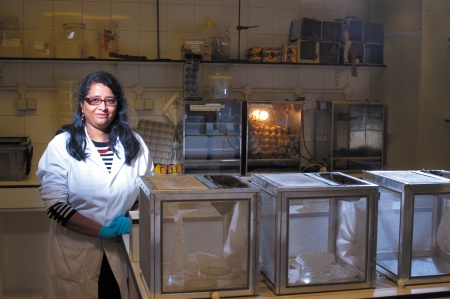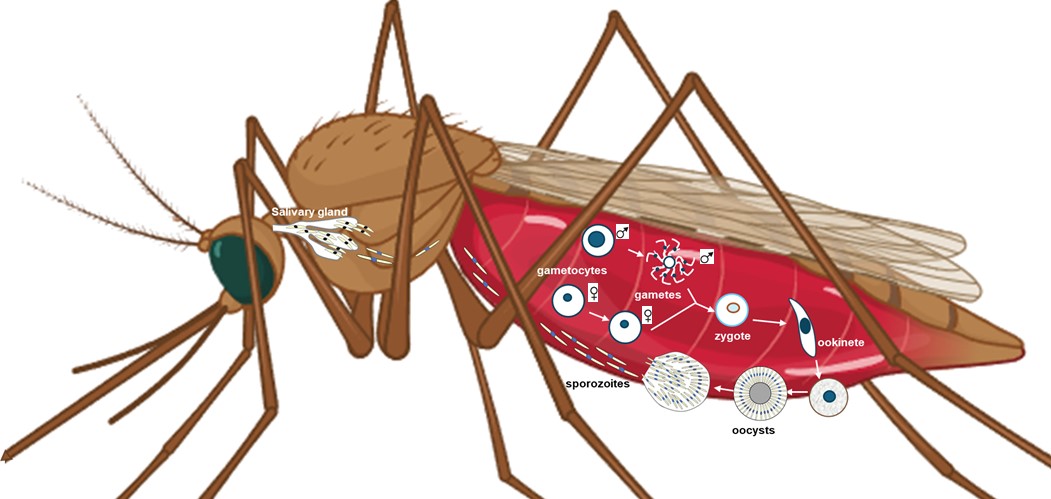Tuesday 20 August marks World Mosquito Day – which is celebrated in memory of Sir Ronald Ross, a British Doctor who, in 1987, discovered that the female Anopheles mosquito transmits malaria. It was the first time a connection had been established between a mosquito and malaria.
Today, there are still a staggering 249 million cases of malaria worldwide. Although two vaccines have been rolled out, these only target disease in the human host and do nothing for controlling transmission or mosquito population (WHO, 2023). However, the fundamental knowledge of how the parasite survives and multiplies within the mosquito is still not well understood.
How is this relevant to people in the UK?
With global warming and climate changes, mosquitoes that are present in warm and humid tropical areas may also spread to other parts of the world. Some of these mosquitoes are responsible for transmitting many deadly diseases such as malaria, dengue and yellow fever. If the mosquitoes spread, this poses risk of these diseases spreading to many areas in the wider world, such as the UK , Europe, China and USA. These diseases are transmitted to humans through transfer of parasites, bacteria or viruses via mosquito bites.
Rita Tewari is a Professor of Cell Biology in the School of Life Sciences at the University of Nottingham.

Professor Tewari says: "On World Mosquito Day, we want to highlight the challenges we face in how to prevent and control the transmission of these diseases by the mosquitoes. The Covid-19 pandemic taught us that as well as controlling a disease, we need to intervene with the transmission of pathogens. In the case of malaria, many of the parasite development stages occur within the female mosquito gut."
What are we doing at Nottingham?
The team in Professor Rita Tewari's lab are working on malaria parasites with a particular focus on understanding parasite proliferation/multiplication and the transmission stages in the mosquitoes.
Whilst the parasites are inside the mosquito, sexual reproduction occurs to produce parasites capable of infecting the human host. Gaining basic knowledge of how the parasite multiplies and thrives could help to develop intervention drugs or vaccine strategies to prevent parasite transmission and stop them in their tracks within the mosquito host.

Professor Tewari adds: "Whilst we do need to be aware of the risks associated with mosquitos, we also need to remember that mosquitoes are not all bad! Mosquitoes perform vital roles in the ecosystem, such as pollinating plants and acting as a food source for other animal species. For this reason, it is important that when trying to control diseases, the mosquitoes themselves are not eliminated therefore disturbing the ecosystem."






